Podcast available at: https://anchor.fm/diane-simcox/episodes/If-Your-Friends-Jumped-Off-a-Cliff–Would-You-Jump-Too-e1dnq4h
Psalm 23 – Week One of Psalms
There are few things you can count on. If you go to a baseball game, you can count on hearing the National Anthem. If you go to a funeral, you can just about guarantee that you’ll hear Psalm 23. It’s a shame that we hear this segment of Scripture and think of it only in situations of death. Especially considering that the last part of this chapter refers to “ALL the days of my life.”
Psalm 23 consists of 6 verses and most of us would be able to recite at least some of it by heart. It’s become something like the Pledge of Allegiance or The Lord’s Prayer. We can say it from memory, but reciting something and understanding its meaning are two totally different things.
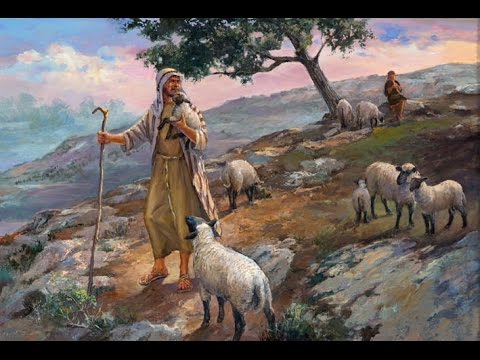
At the beginning of this poem, David writes this from the viewpoint of a sheep. We all know that David had been a shepherd in his early years. He understood the role of a shepherd; he also knew the habits and behaviors of sheep. David’s use of sheep and its shepherd as a comparison to us and the Lord is not something new to us. In the Old Testament, in Isaiah 53:6, it reads: “All we like sheep have gone astray; we have turned—every one—to his own way; and the Lord has laid on him the iniquity of us all.” In the New Testament, in Mark 6:34 , it speaks of Jesus looking upon a large group. “When he went ashore he saw a great crowd, and he had compassion on them, because they were like sheep without a shepherd. And he began to teach them many things.”
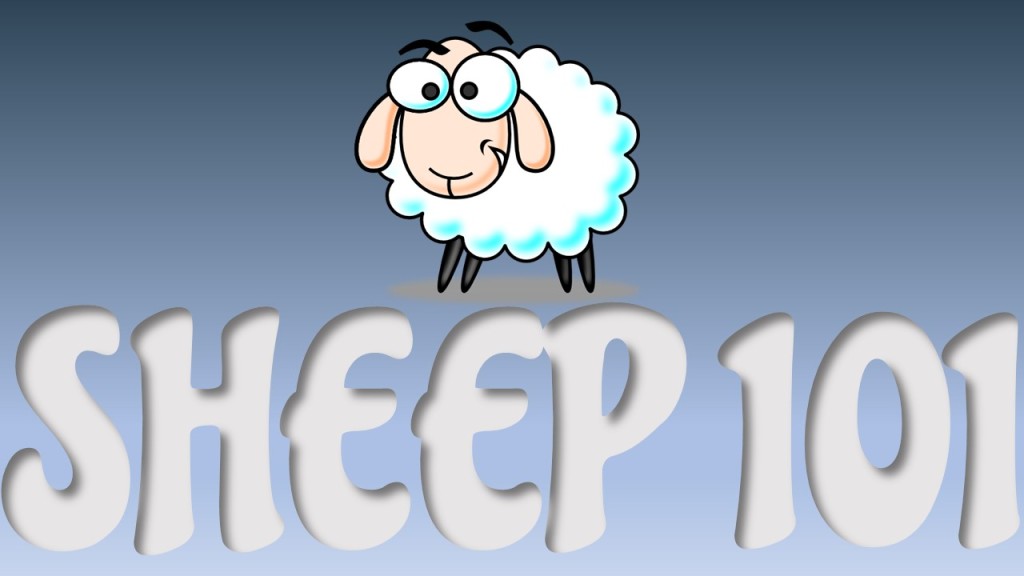
Sheep are the most referenced animal in the Bible. To really understand Psalm 23 and the statements about the relationship that David describes having with God, we should enlighten ourselves on the characteristics of sheep and see why God often refers to us as His sheep.
Sheep are known for being less than intelligent; in fact, sheep are thought to be a bit on the dumb side. Sheep have no sense of direction. They live their entire lives playing follow the leader. One farmer said that if you have a bunch of sheep in a barn, stretch a rope across the door before you let them out. When the sheep come out of the barn, the first few will jump over the rope. If you cut the rope, the remaining sheep will still jump over the “invisible rope” because it’s what the rest of the flock did. [i] In 2005, while some shepherds took a break to eat their breakfast, one sheep out of a flock of 1,500 jumped off a cliff in Turkey. The other sheep in the flock followed. Right off the cliff. 450 of those sheep didn’t survive the fall. The others were only able to survive because they had a soft landing thanks to the sheep that had plummeted before them.[ii] Sheep, without a shepherd, are totally disoriented. They are unable to discern if a path is safe or not if left to their own judgment. The role of the shepherd is to lead the sheep to where they need to go. You’ve probably heard of a cattle drive where the cattlemen get behind the cattle and they prompt the cattle to move forward. Sheep are just the opposite in that they have to have their shepherd ahead of them in order to lead them because they don’t know where to go.
“The mind of a person plans his way,
But the Lord directs his steps.”
Proverbs 16:9 nasb
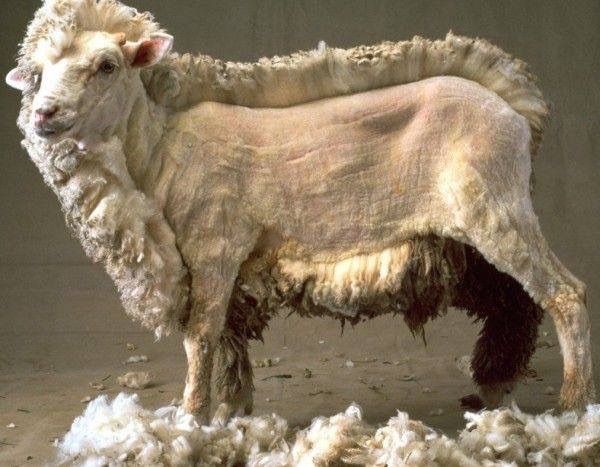
Sheep are comfortable with being filthy. Most animals clean themselves. Household cats and other felines will lick themselves. Elephants will use their trunk to shower off their bodies. Birds will often use their beak to keep their feathers clean. And monkeys will groom each other. Sheep aren’t bothered by the nastiness so much and so they go about their daily business getting dirtier and smellier by the day. A shepherd has to regularly dip the sheep to clean them and to keep them protected from pests and they will also clip off the tails of sheep on a regular basis because it apparently gets pretty nasty and can become a hotbed of infection and disease. The shepherd also sees to it that sheep are sheared at least once a year because without eliminating the weight of the wool, a sheep is unable to regulate its body temperature and could die from excess heat. Unlike other animals who routinely shed their fur or skin, sheep are unable to shed their wool on their own.
“Come, let’s talk this over, says the Lord; no matter how deep the stain of your sins, I can take it out and make you as clean as freshly fallen snow. Even if you are stained as red as crimson, I can make you white as wool!”
isaiah 1:18 tlb
If a sheep is injured, it doesn’t know to clean its wound and other sheep don’t know to do it for them. Most animals will lick their wounds or keep them protected in some way. Sheep don’t know how to heal themselves. Shepherds will make regular rounds checking each sheep and applying medication to any wounds.
“He heals the broken in heart,
and binds up their wounds.”
psalm 147:3 mev
They are so timid by noise, especially running water, that they’ll stop and drink from a muddy puddle filled with all sorts of parasites and diseases, rather than walking a few feet to fresh water in a stream. They aren’t able to discern what’s good for them and what’s harmful. Shepherds will lead the sheep away from unhealthy water and towards water that is safe to drink. Sheep will also keep returning to the same spot where they once found water even though the area is bone dry. They’ll stand there, staring at the dust rather than realize there is no water to drink. So shepherds have to lead them away from dusty wells that can’t possibly quench their thirst.
“ Whoever drinks the water that I will give him will never be thirsty. The water that I will give him will become in him a well of life that lasts forever.”
john 4:14 nlv
Sheep are constantly eating, but they’ll eat anything; including poisonous weeds. They lack the ability to know what’s safe and what’s harmful when it comes to eating. The shepherd is responsible for leading the sheep to green pastures where it’s safe for the sheep to graze.
“The Lord will protect you from all harm;
He will protect your life.”
psalm 121:7 hcsb
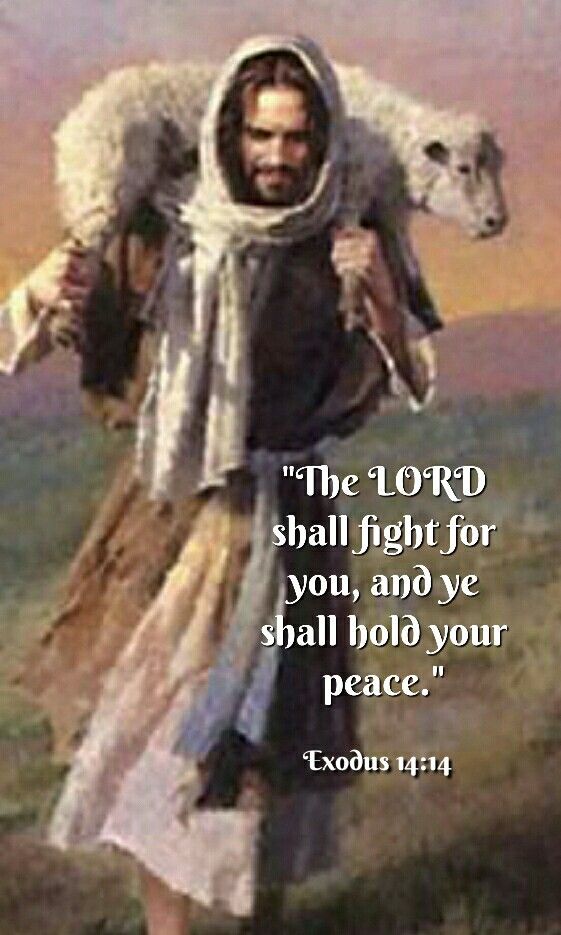
Are you getting the fact that sheep are a bit helpless? They aren’t able to defend themselves very well. Think about it for a moment. They don’t bark or bite. They don’t have sharp claws or venom. They will kick from time to time, but mostly they protect themselves by either running away or huddling together as a flock. It then becomes survival of the fittest. Shepherds have to watch over their entire flock and be alert for coyotes, bears, wolves, and any other predators and scare them off because the sheep are basically defenseless.
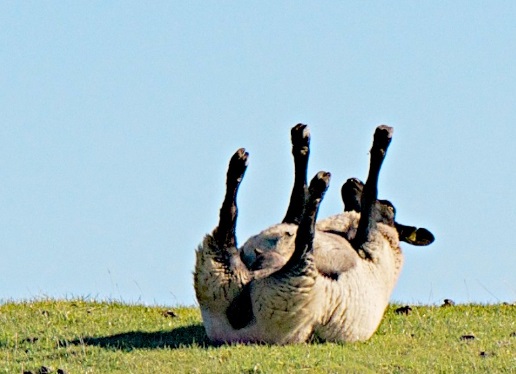
Sheep will sometimes fall and they’ll end up on their backs. When they’re in this position, they are unable to get themselves back up. This is known as being “cast down”. A sheep who is cast down is very vulnerable to predators and is actually unable to survive for very long being in that position. The only way a sheep can be put back on its feet is for its shepherd to come along and assist.
Have you ever noticed that you don’t ever see a sheep with a load on its back? That’s because sheep are not physically equipped to carry heavy loads. Placing a heavy object on a sheep would literally crush it and impair it. Shepherds don’t place unnecessary burdens or weights on their sheep because they know that it could very likely kill the sheep.
“Cast your burden upon the LORD and He will sustain you; He will never let the righteous be shaken.”
psalm 55:22 bsb
Probably most of us have never spent any significant amount of time around sheep, but if we did, we would possibly notice that sheep have facial expressions. Apparently, it’s easy to see if a sheep is in a bad mood just by looking at it. Also, sheep can get depressed. This is true especially if a sheep is kept from its flock for a period of time. They are very social animals and need to be around their family. A shepherd will know at any given time how many sheep they are tending and will continue to keep track of the sheep at all times.
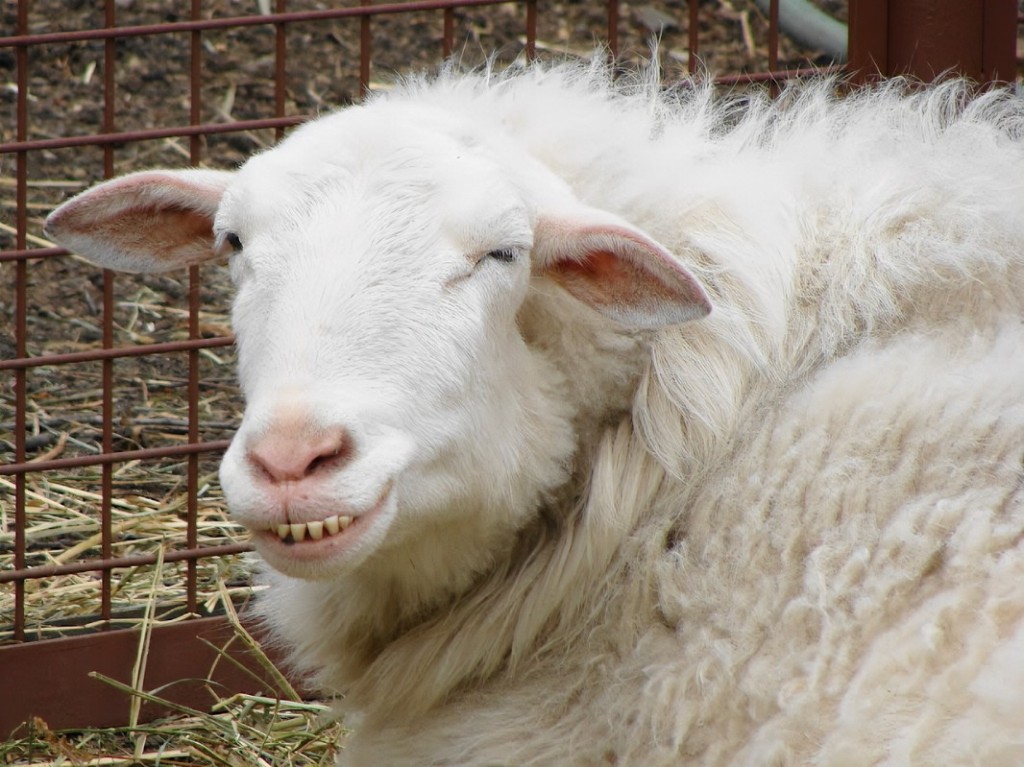
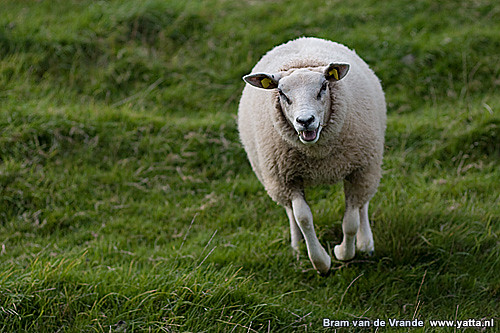
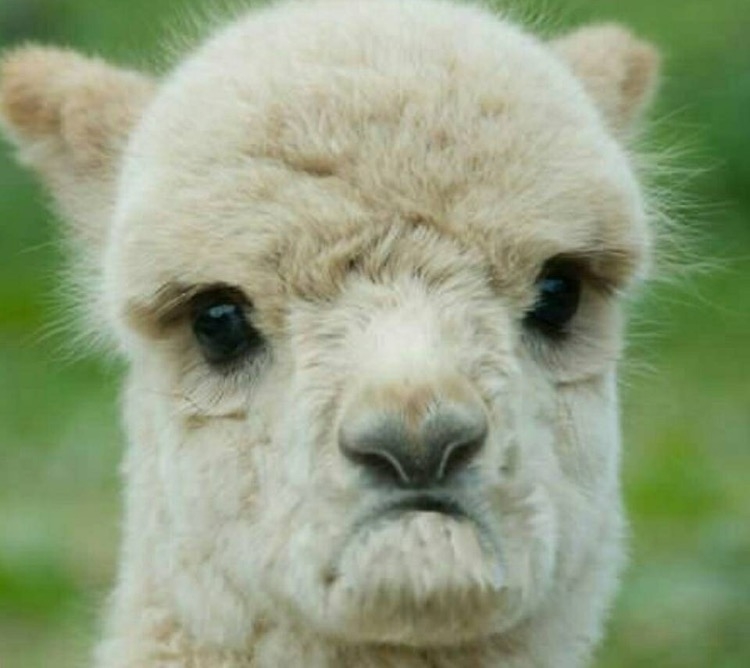
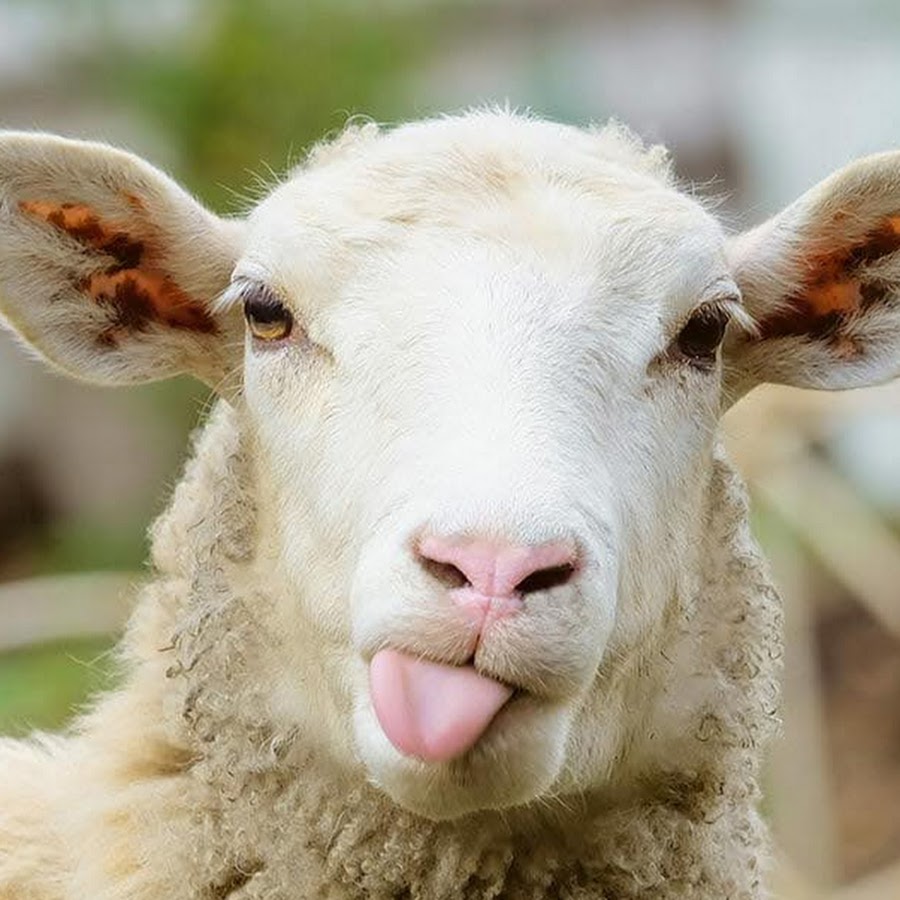
Sheep can also recognize faces and voices and respond to humans with whom they are familiar. A shepherd will also know the individual sheep of its flock and is able to identify them at a glance.
In other words, there is a relationship between a shepherd and his sheep. There is a definite dependent connection between a shepherd and his sheep. Obviously, sheep do their part by providing wool and milk, but they are only able to produce when they are well-cared for, protected, and fed on a regular basis.
“By prolonged and continued fellowship, the sheep who follow nearby enjoy the shepherd’s presence and become his familiar companions. To those closest to him, he shares the choicest portions of the food he’s gathered. These happy and content sheep are never in danger. Why? Because they are near the shepherd!”— Elizabeth George
Keeping these little facts about sheep and shepherds in mind, consider the words of David.
Psalm 23:1 NKJV 23 “The Lord is my shepherd; I shall not want.”
David is identifying himself as a helpless, directionless, incapable being who is taken care of, led by and protected by his Shepherd. David is recognizing that on his own, much like the sheep, he is unable to sustain himself, to keep himself clean, fed, and safe without the help of his Shepherd. And you’ll notice that David doesn’t say the Lord is A Shepherd; he says the Lord is MY Shepherd.
In order for us to identify the Lord as our Shepherd, we must first identify ourselves as sheep. We have to see our own selves as helpless, directionless, incapable, and in need of a leader, protector, and provider.
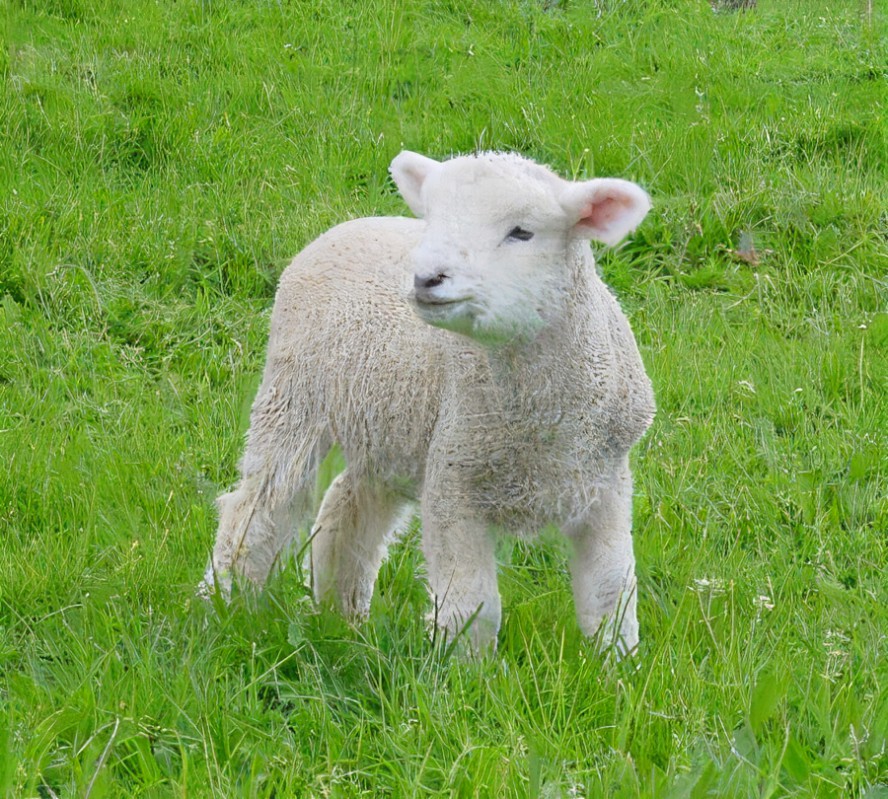
In order for us to identify the Lord as our Shepherd, we must first identify ourselves as sheep. We have to see our own selves as helpless, directionless, incapable, and in need of a leader, protector, and provider.
David states that with his Shepherd, he has all that he needs. There is nothing that David needs that God doesn’t provide. We read this and understand that David recognizes he is fulfilled by God and all that God offers. Not only that but by saying, “I shall not want” David is also making a declaration that he is content with what God gives him and will not desire anything outside the will of God. That view sheds a brighter light on that statement, doesn’t it? We like to make claim to the message of Philippians 4:19 ESV “And my God will supply every need of yours according to his riches in glory in Christ Jesus.” We also tend to warp the definition of need to include things we want as well as things we think we need.
Psalm 23:2 NKJV “He makes me to lie down in green pastures;”
Have you ever had anyone make you lie down? Most of us probably spent the first few years of our life fighting naptime. Bedtimes can be a struggle with little ones because they’re thirsty, they’re hungry, they’re scared, they’re not sleepy. But as parents, we know how important it is for children to get their rest and so we make our children or grandchildren lie down in order to that needed rest. Even as adults, we tend to push ourselves and not take time to rest as we should. David says that his Shepherd makes him to lie down. There is a book written by Phillip Keller entitled A Shepherd Looks at the Good Shepherd and His Sheep. Phillip Keller, himself, was an experienced shepherd and was able to write with that knowledge. He says that in order for sheep to willingly lay down, four conditions must be met. The sheep must not be in fear. Remember their main means of protection is to run. The sheep must not be experiencing conflict with one another. If you recall, sheep are emotional and social animals and any kind of friction or discontent will cause them to not be able to relax. Sheep must also be free of insects or parasites. Even though they are content with their own filth, the annoyance and disturbance of insects or parasites will keep them from settling down. And the fourth condition is they have to be well fed. A hungry sheep won’t lie down. In order for sheep to lie down, the shepherd has to ensure their safety, unite them, keep them from disturbances and feed them.
Likewise, God has to make us lie down at times. We encounter periods in our life when we are forced to take a break from all distractions and just settle down in His presence. Sadly, I’m afraid that many of us are too hardheaded and prideful that we don’t recognize our need for those times.
David is also very specific about where the Lord makes him lie down; in green pastures. As a shepherd, David would be very well familiar with the different terrains and so we can assume that he wasn’t just being poetic when he used the phrase “green pastures”. Phillip Keller says, “ Green pastures did not just happen by chance. Green pastures were the product of tremendous labor, time and skill in land use. Green pastures were the result of clearing rough, rocky land; tearing out brush and roots and stumps; of deep plowing and careful soil preparation; seeding and planting special grains and legumes; of irrigating with water and husbanding with care the crops of forage that would fed the flocks.”[iii] In other words, green pastures weren’t plentiful.
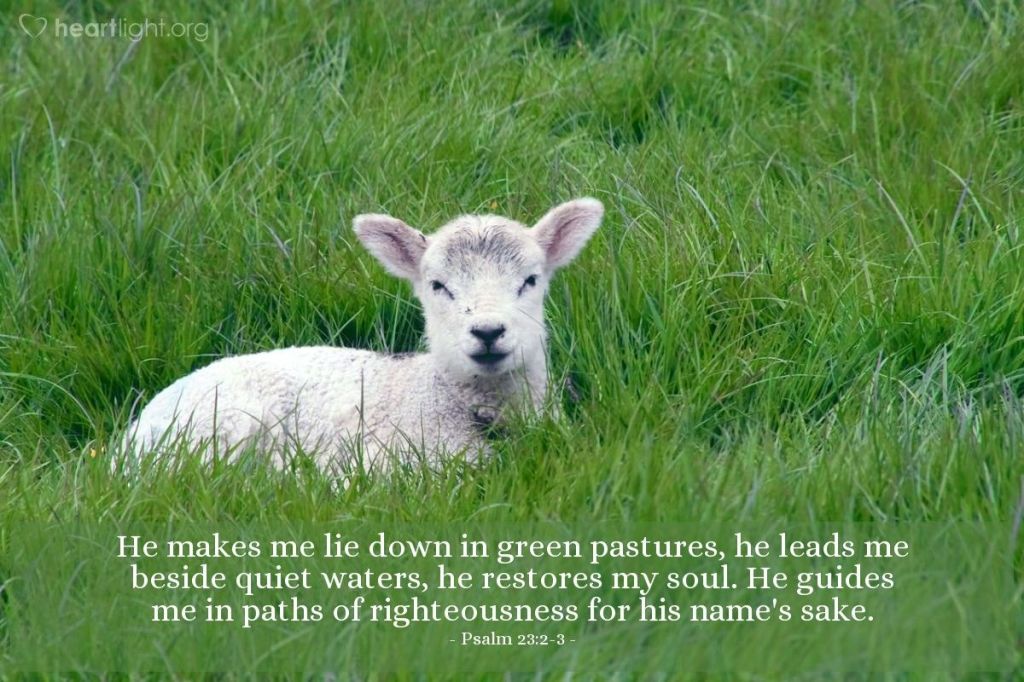
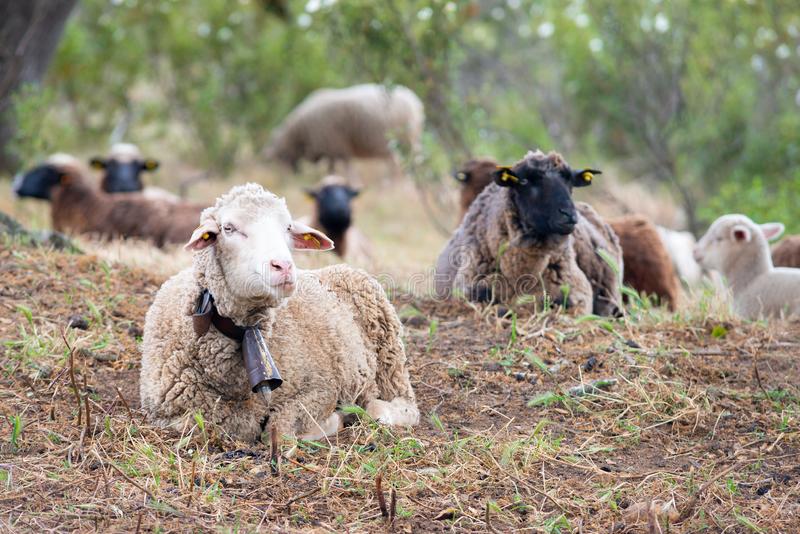
When we see pictures depicting Psalm 23, we often will see a lush, bright green meadow that is rich in vegetation. But David would have had a more realistic view in mind. Green pastures in that area would have been more of a hillside with small areas of little sprigs of grass that were often broken up by sandy pathways. The sheep would settle down, as long as they felt safe, content, comfortable, and satisfied and they would be within reach of these patches of vegetation. The idea is that there was just enough there to meet their immediate needs. If you were to put a sheep in a lush, fully grown field, they may overeat and become ill or possibly die because they aren’t able to know when to stop eating. They have to have their provisions portioned out for them.
How often do we want more than what we need? We strive to have our lives cushioned with not only our needs for today but for future days as well. We often leave God out of the strategies of planning for our future and we attempt to take care of ourselves.
Proverbs 30:8 VOICE “Do not make me poor or rich, but give me each day what I need;
9 For if I have too much, I might forget You are the One who provides, saying, “Who is the Eternal One?”
Or if I do not have enough, I might become hungry and turn to stealing and thus dishonor the good name of my God.”
How many of us can testify to the fact that God knows our needs before we do?
Psalm 23: 2b NKJV “He leads me beside the still waters.”
He leads me. David is saying that God goes before him and David follows. Where does God take him? Just like a shepherd would not lead his sheep to a babbling, noisy brook that would frighten the sheep, and not to a flowing river that may cause a sheep to lose its balance, God takes David to drink from still waters. God provides a calming, restful place for David to be refreshed.
Psalm 23:3 NKJV “He restores my soul; He leads me in the paths of righteousness For His name’s sake.”
David, as we all know, had his moments of indiscretion and poor judgment. Who among us hasn’t? But as David likens his role as a sheep who has gone astray, he acknowledges that once he commits himself to have the Lord as his shepherd, the Lord restores his soul, his life. The original words that David used are translated as “He causes my life to return.”[iv] And David acknowledges that the Lord does this so that David can live his life for the glory of God.
Psalm 23:4 NKJV “Yea, though I walk through the valley of the shadow of death I will fear no evil; For You are with me;”

When we think of the valley of the shadow of death, it conjures up a dark, sinister image, doesn’t it? It’s not a pleasant picture. But there are four nouns in that verse. The first is a valley. What is a valley? A valley is an area nestled in between two mountains. It’s impossible to have a valley without mountains. It’s impossible to have low points in your life without having good points. Not only that but there’s only one valley to every two mountains. Those mountaintop experiences are more plentiful than the lowdown valley experiences.
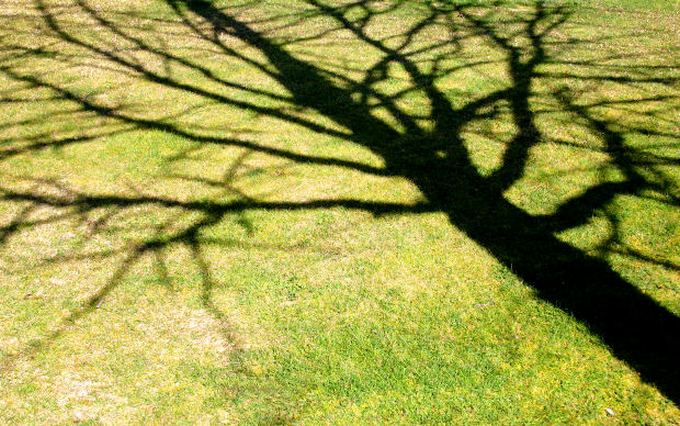
The second noun is shadow. There are no shadows in the dark. Shadows can only exist where there is light. A shadow is formed when there is a disruption between the source of light and an object. All sorts of circumstances we encounter in life can cause shadows. Those would be the times when we feel God is maybe not paying attention, He’s not listening because we’re too focused on the shadow to see His light.
The third noun is death. Without life, there is no death. Never have I ever looked at a rock and thought, “Oh that poor rock. It’s dead.” The rock was never alive, to begin with, so it’s never going to be dead.
The last noun is evil. And we know that evil doesn’t exist unless good exists.
Isaiah 5:20 GW “How horrible it will be for those who call evil good and good evil, who turn darkness into light and light into darkness, who turn what is bitter into something sweet and what is sweet into something bitter.”
So to paraphrase what David is saying in this verse, in modern terminology: Even though I go through tough times that occur in between the good times when circumstances cause a cloud of darkness and life as I know it seems to be slipping away, I’m going to trust in Your goodness and know that you are still right there beside me.

Psalm 23:4b NKJV “Your rod and Your staff, they comfort me.”
A shepherd would carry a rod which was a long, sturdy wooden weapon used to fight off predators. The shepherd would have with him a staff which was a long, narrow stick that would be hooked at the end. This would have been used to gently redirect sheep that were going astray. The hook would sometimes be used to rescue a sheep that had wandered off the path and gotten trapped in some way. A shepherd could be equipped with a rod and a staff, but he would also need to be alert of what’s happening to his flock and know when to use which tool. David says that the Lord’s protection and guidance give him comfort knowing that the Lord is alert and watchful over David and his life.
In the last two verses, David transitions from identifying the Lord as a Shepherd to the Lord as a host.
Psalm 23:5 NKJV “You prepare a table before me in the presence of my enemies; You anoint my head with oil; My cup runs over. 6 Surely goodness and mercy shall follow me all the days of my life;
And I will dwell in the house of the Lord Forever.”
David sums up this poem by describing God’s supplication for us. As One who not only hosts us at His table, but He actually prepares for our arrival. And David says that God does this in front of our spiritual enemies. The anointing of oil and the overflowing cup signify the welcoming and the abundance of blessings that God gives to us. And then David ends this by saying that goodness and mercy will be with him because God will always pursue him and that we are His and will remain with Him forever.
These words and thoughts are comforting, calming, and encouraging and we need to apply them to our daily living and not wait until we’re six feet under. The Lord is my Shepherd and I am His defenseless, confused and helpless sheep and I’m okay with that.
[i] https://momremade.com/god-compares-us-to-sheep/
[ii] https://www.mindblowing-facts.org/2013/06/in-2005-in-turkey-a-suicide-sheep-jumped-off-a-cliff-and-1500-sheep-followed-the-first-one/
[iii] A Shepherd Looks at the Good Shepherd and His Sheep by Phillip Keller
[iv] Barnes, https://www.studylight.org/commentary/psalms/23-3.html
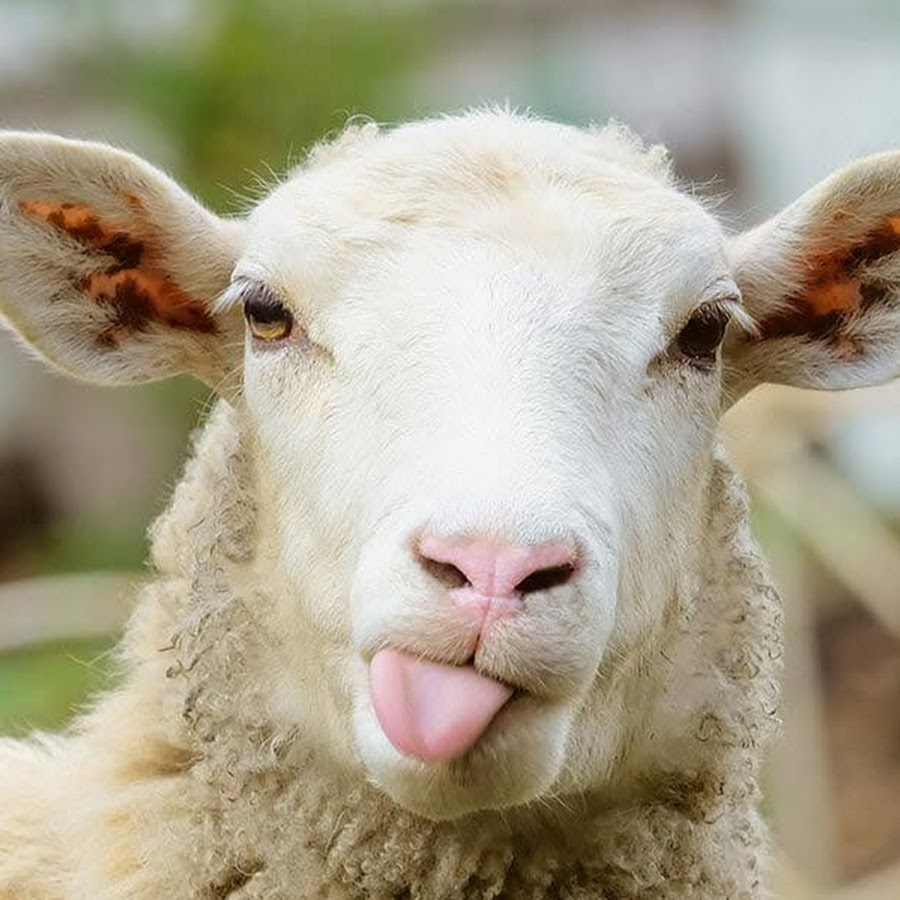
I just wanted to drop you a note to let you know that I am amazed at how gifted you are at teaching God’s Word. I enjoy your blog so much! ❤️
LikeLiked by 1 person
Thank you, Gail! ♥️
LikeLike